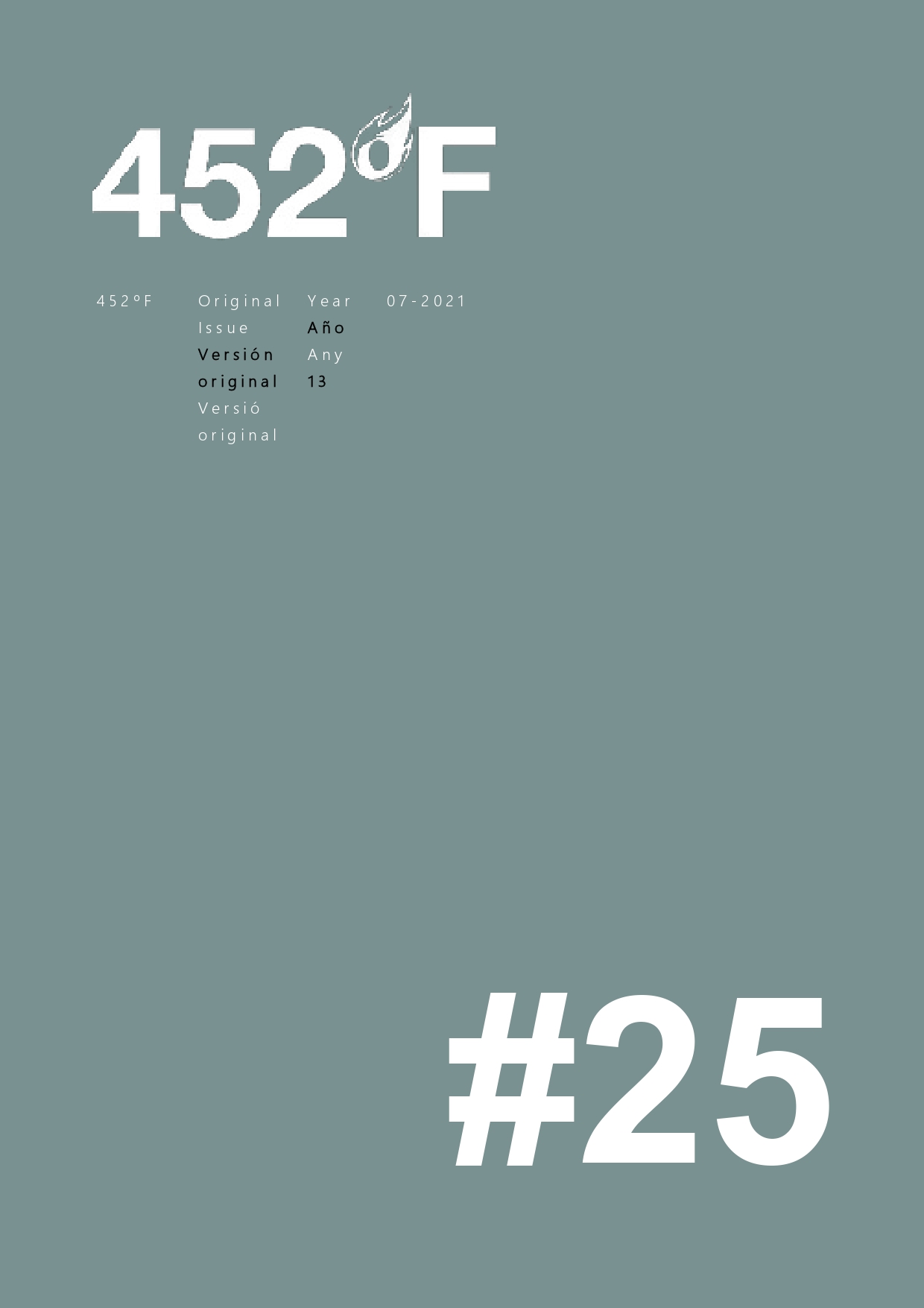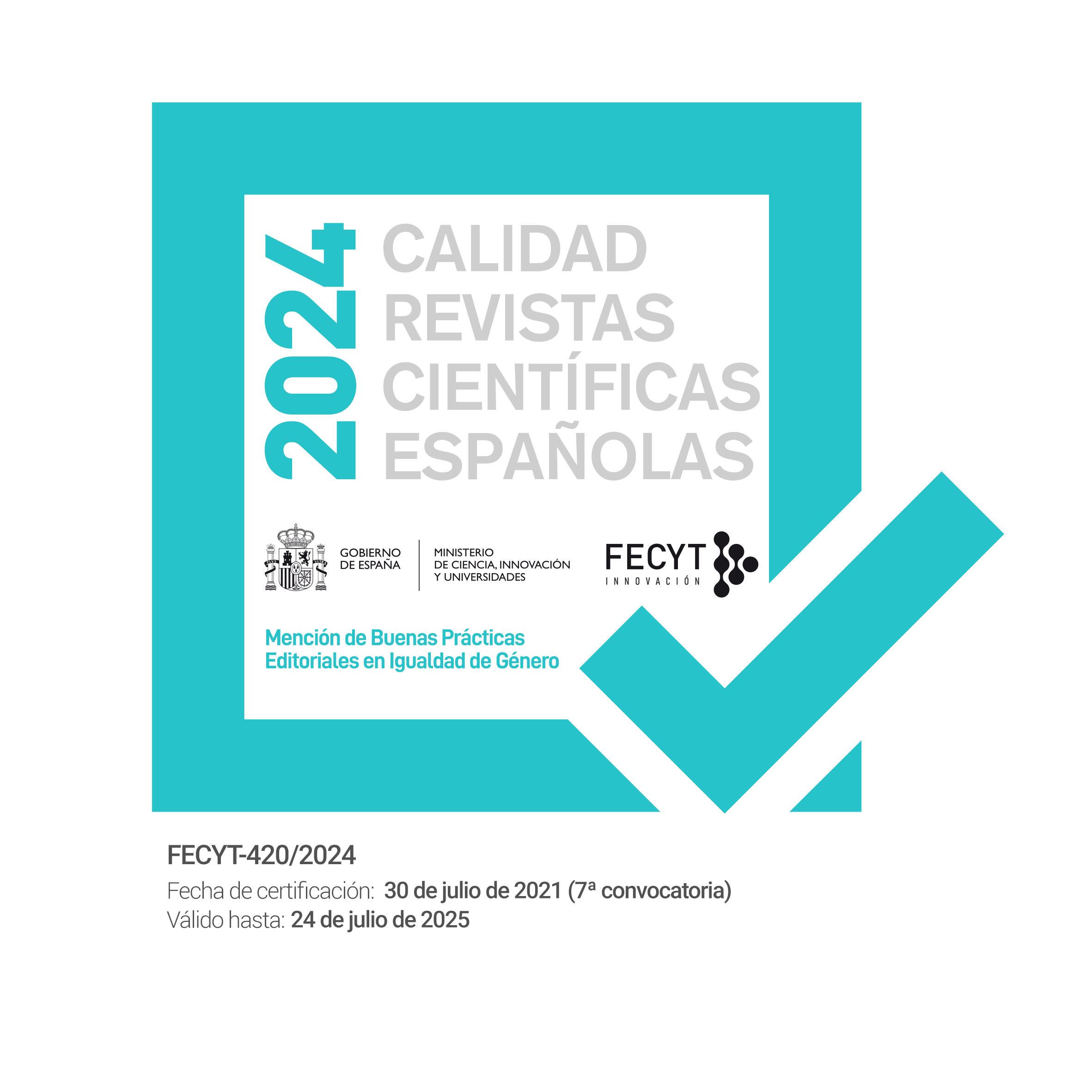Intersemiosis and Intermediality as Aesthetic Proposals for Ethical Commitment in the Work of Julia Otxoa
DOI:
https://doi.org/10.1344/452f.2021.25.4Keywords:
Intersemiosis | Intermediality | Violence | TerrorismAbstract
The work of Julia Otxoa, poet, narrator, and visual artist born in the Basque Country (San Sebastian, 1953), is characterized by an experimental creativity where the genres and formats of different literary and nonliterary expressions, artistic or not, are hybridized and/or transposed, configuring a non-canonical aesthetic in which, on the one hand, the intermediary procedures of textual and formal structuring take center stage (Sánchez-Mesa and Baetens, 2017) and, on the other, the discursive presence of violence is treated intersemiotically (Torop, 2002). The analysis of this article focuses on describing these categories, intersemiosis and intermediality, as configurative dimensions of an aesthetic proposal that is created as an ethical commitment to respond to the acts of violence that take place in the post-dictatorial context of pro-independence nationalist ideology in the Basque Country.
Downloads
Published
How to Cite
Issue
Section
License
All contents published in the journal are protected under a Creative Commons BY-NC-ND license. This corresponds to legislation within Spain, and does not allow commercial use of the texts. It is not possible to modify the contents either.
General information.
Comparative Literature magazine 452ºF [ISSN 2013-3294] is a publishing project coordinated by Asociación Cultural 452ºF, and developed by its Editorial board.
Access to the Contents and Copyright.
All contents published in the journal are protected under a Creative Commons BY-NC-ND license. This corresponds to legislation within Spain, and does not allow commercial use of the texts. It is not possible to modify the contents either.
Every person has free access to the contents of the journal as long as they understand and assume that no profit is to be made on other people’s work.
In all cases, the original source name of the online journal and the article must be mentioned when used for any purposes.
Basic Conditions of all Call for Papers.
- 1. The author accepts that sending the paper:
- a. Does not guarantee the publication of it.
- b. Is done in accordance to the style-sheet of the magazine and the requirements of the specific call for papers.
- c. Implies the non-exclusive transferring of the first publication rights of the paper, as long as it is selected to be published in the journal, to theAsociación Cultural 452ºF, under a Creative Commons BY-NC-ND license.
- 2. The journal 452ºF, in due respect to moral rights of a copyright, guarantees that:
- a. All papers will be evaluated according to the procedure already mentioned.
- b. All authors will receive either a positive or negative answer to their sending a paper for publication.
- c. All papers will be published unabridged. The journal might make changes in the typographical disposition according to the needs.
- d. All papers will be published under a Creative Commons BY-NC-ND license.





